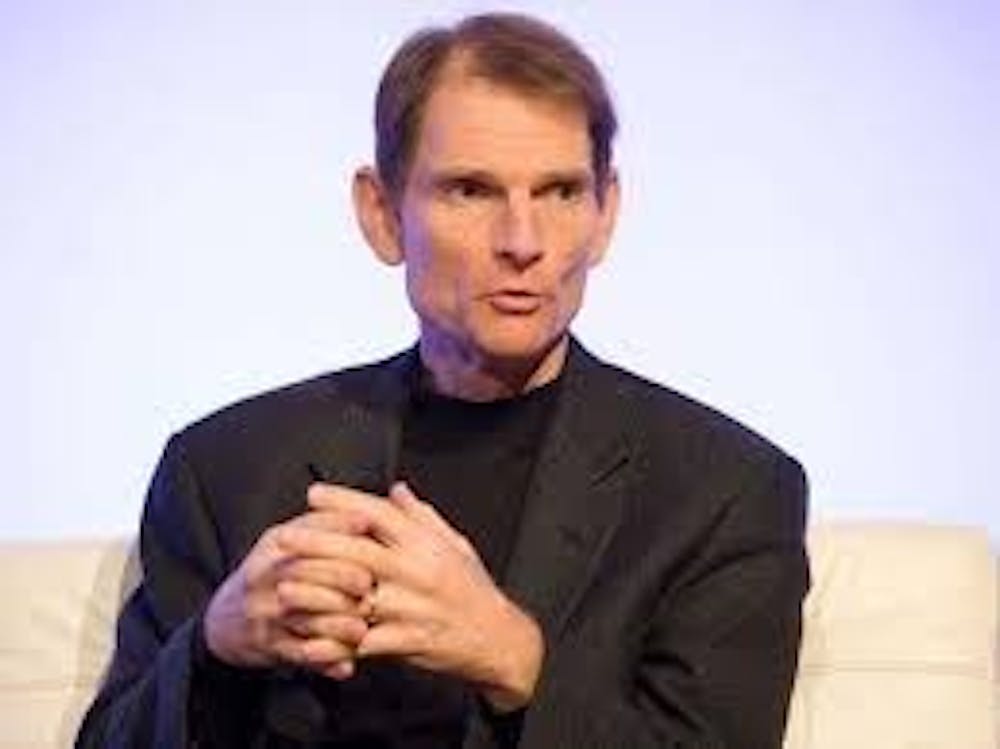Joe Kennedy '81 was the president and CEO of Pandora, an Internet music site that suggests songs that users might enjoy based on a complex algorithm. Currently, he advises budding entrepreneurs and early-stage companies seeking to make an impact in the technology field. Kennedy sat down with The Daily Princetonian to talk about his time at Princeton, and how his experience at the University led to his successful career.
The Daily Princetonian: What got you interested in applying to Princeton in high school?
Joe Kennedy: I applied to Princeton for two reasons, one is I knew that it was a great school academically. I played tennis in high school, and there was a state tournament [in Princeton], and I thought it was the most beautiful place to go to school that I could imagine.
DP: When you got to campus, did you know you wanted to pursue a certain subject?
JK: In my application, I said I wanted to be a computer science major, and this was back when computer science and electrical engineering were a single department, and I ended up graduating in that major. But in truth I’d never touched or programmed a real computer before I stepped on the campus. It was a very different world. In many ways, my love for computers and algorithms was really developed entirely on campus and became my pursuit, which is not something I knew or really predicted walking in the building.
DP: You were also interested in music on campus, so how did you combine your interests in music and engineering on campus?
JK: I was interested in studying music, and I took a couple of music courses. I took the Introduction to Music Theory course, and I took another course in the music department as well. I think I learned quite quickly that there were people a lot more talented than I, and so that didn’t change my love for music, but I put music in the bucket of purely avocation. It is somewhat stunning and miraculous that, fast-forward 20 years out of Princeton, that I worked in a company that was all about music.
DP: Could you talk about what your senior thesis was about?
JK: I didn’t do a senior thesis; I actually did an independent project. I actually studied one of Alan Turing’s GS ’38 papers on the theory of automata, which was a significant interest of mine as an undergraduate.
DP: Is there one experience that you had at Princeton that you thought was unique or that you enjoyed the most?
JK: The truth is, I loved the whole experience. I’m not sure I could break it down. I had a great set of roommates freshman year, who have remained lifelong friends, and we’re all going to have dinner Friday night. That was really special, but there were many pieces of the Princeton experience that were very special to me.
DP: Was there something about Princeton that has prepared you for your career?
JK: I owe an enormous debt to Princeton. I think Princeton prepared me in so many ways, and I think Princeton taught me how to think deeply, think about topics from many different perspectives, articulate a point of view and be challenged. I happened to learn a lot about computers, but I think I benefited in the typical Princeton way of being educated in the liberal arts. That entire combination set up many good things for me post-Princeton.
DP: Was there one role you had in your career that you really loved doing?
JK: I was very fortunate in terms of career, but certainly being the CEO of Pandora was the pinnacle experience for me thus far. It brought together computers and technology, optimization and algorithms, and I had become interested post-Princeton in marketing and, specifically, how you connect consumers to technology. I was leading an organization in which music and musicians were a major piece. Many different parts came together in that role and made it an extraordinary experience.
DP: How did you find about Pandora, and what about its mission got you interested in working for them?
JK: Well, I joined Pandora before it was Pandora. I joined a failed music technology company called Savage Beast Technologies that had this interesting piece of intellectual property called the Music Genome Project. But it had failed pretty badly trying to sell software to music stores and other forms of music retail. At the core, there was a new set of investors and a team of people excited about the possibilities of using the Internet to enable people to discover and enjoy music that they love. That purpose really resonated with me. I had some experience elsewhere in the consumer Internet, and not long after I arrived, we conceived what is now known as Pandora.
DP: Could you talk about the kind of work you do now? Is it something similar to what you were doing before?
JK: My work in the business world at this point consists entirely of advising young companies’ CEOs as they seek to lead young mentors. I’m happy to say that two of those people [are] Princetonians; one is a current undergrad, and one is a Princeton alum. My satisfaction at this point is derived from trying to share my experience and wisdom with CEOs who are seeking to lead companies and pursue exciting missions.
DP: Finally, what do you like to do outside of work?
JK: I still enjoy playing the piano, and I was a member of a very good Princeton tennis team, and I still love to play tennis. Princeton tennis team alumni get together every Saturday morning, and I’m looking forward to that.
Image Courtesy BusinessInsider









